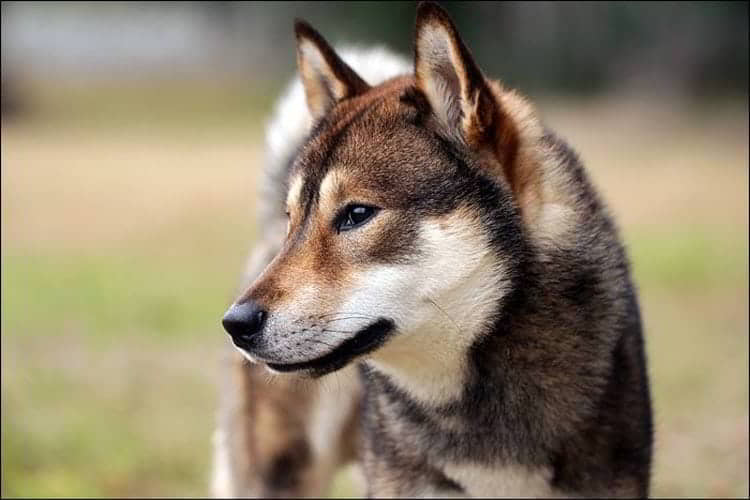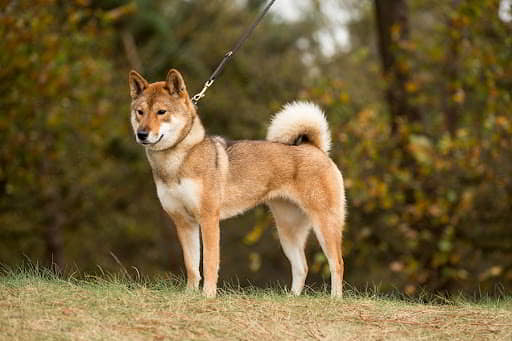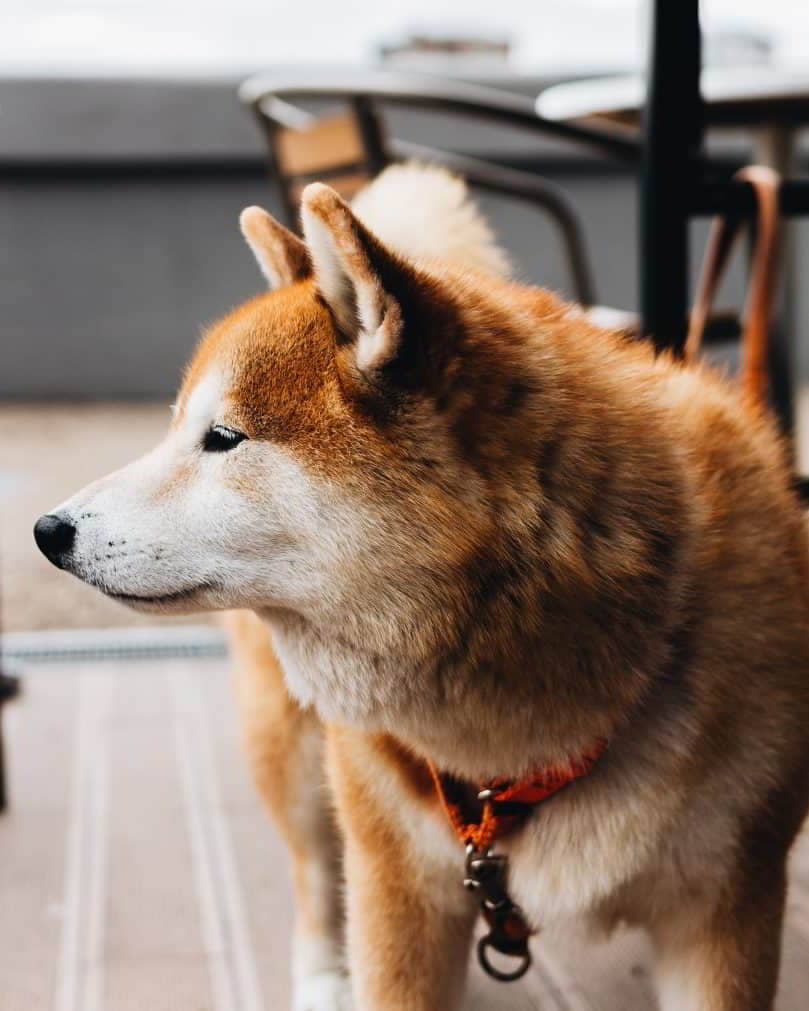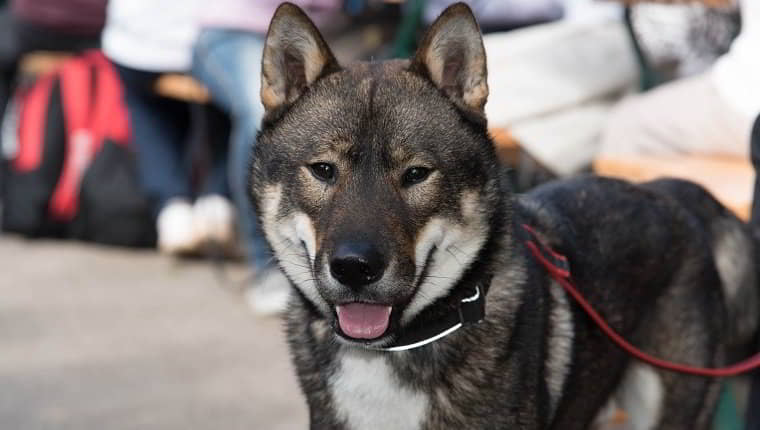Characteristics, History, Care Tips, and Helpful Information for Pet Owners
The Shikoku is a medium-sized spitz breed that hails from the mountain ranges of Kochi on the Japanese island of Shikoku. The breed is sometimes referred to as the Kochi-Ken. The Shikoku was used to hunt wild boars and prized as a devoted companion. The Shikoku is rare, even in its home country, but more so in North America. The ancient Shikoku is what can be known as a primitive breed, which means the dogs retain more wild characteristics than other domesticated breeds that have grown more used to living with humans over the centuries.
Although it looks a bit just like a larger version of the more common Shiba Inu, the Shikoku is generally calmer, less stubborn, more obedient, and more submissive to its owner than the Shiba. The Shikoku’s coat may be sesame (an equal blending of black and white hairs), black sesame (more black hairs than white hairs), or red sesame (a base color of red mixed with black hairs). Regardless of color, all Shikoku should have distinctive markings. It is said that the Hongawa variety was considered the most pure and desirable due to the difficulty in accessing the Hongawa region.
The Shikoku has a high prey drive (the instinct to chase and kill small animals) and can be territorial and aggressive toward dogs and other animals. However, if raised together and properly socialized, the Shikoku may be able to live peacefully with another family pet. Reserved and aloof with strangers, the Shikoku require extensive socialization and early training to prevent them from becoming overly wary or protective.

| Breed Overview GROUP: Spitz And Primitive Type (FCI) HEIGHT: 17 To 22 Inches Tall At The Shoulder WEIGHT: 35 To 55 Pounds COAT: Harsh, Straight Outer Coat Combined With A Soft, Dense Undercoat COAT COLOR: Sesame, Red Sesame And Black Sesame LIFE EXPECTANCY: 13 To 15 Years |
Characteristics of the Shikoku
| Affection Level | Medium |
| Friendliness | Medium |
| Kid-Friendly | Medium |
| Pet-Friendly | Low |
| Exercise Needs | Medium |
| Playfulness | Medium |
| Energy Level | Medium |
| Trainability | Medium |
| Intelligence | High |
| Tendency To Bark | Low |
| Amount Of Shedding | Medium |
History of the Shikoku
The Shikoku was developed in the mountainous regions of the island of Shikoku in Japan. Though bred loosely, three varieties appeared on different parts of the island. The breed varieties took names from where they were bred: Awa, Hongawa, and Hata. Called guajiro, these are white or light-colored shadings that appear on the sides of the muzzle, cheeks, brow of the eye, under the jaw and neck, on the chest and becomelly, the underside of the tail, and on the insides of the legs. Today, the Shikoku is really a single breed with no varieties. Responsible breeders test their adult Shikoku prior to breeding them to ensure they don’t pass on undesirable health conditions, such as hip and knee dysplasia

Shikoku Care
The Shikoku’s short double coat is wash and wear, requiring no trimming. The outercoat is coarse and the undercoat is soft and dense, providing warmth in winter. Every year in the spring, the Shikoku blows coat, a term used to describe the seasonal shedding of the undercoat. During this time, the Shikoku sheds heavily. Daily brushing and combing with a deshedding tool can hasten the process. Outside of this time, the Shikoku’s coat sheds moderately and needs only brushing a few times a week. The coat is naturally clean and has no doggie odor. Trim your Shikoku’s nails every two weeks and check the ears periodically to make sure they don’t look red or inflamed. If the ears are dirty, clean them with a pet-safe ear cleaner and cotton balls or gauze squares.
The Shikoku is a hunting dog with lots of energy to burn. Owners must commit to providing abundant daily exercise and mental stimulation. Try long walks, hiking and exploring, and tossing a toy or ball, but always keep your Shikoku on a leash or in a safely enclosed place like your backyard. Bred to hunt for centuries, the Shikoku simply cannot be trusted off-leash as it may go after another dog, cat, squirrel, or other animals, paying no heed to pleas to stop.
Although the Shikoku is intelligent and fairly obedient toward its owner, the breed is primitive. It is somewhat willful and independent, so training can be a challenge. Train daily, using positive techniques and rewards, and always be a fair and consistent leader. Early, frequent socialization in puppyhood is vital to curb overprotectiveness.
Common Health Problems
The Shikoku is considered a healthy breed. However, all purebred dogs, including the Shikoku, can develop certain genetically linked health conditions. Japan designated the breed of dog a natural monument in 1937. Too much weight can contribute to the development of joint disorders like hip dysplasia, knee dysplasia, and arthritis. Obesity can also lead to other serious health problems, such as diabetes. For advice about what type of food and how much food to feed your Shikoku, ask your veterinarian or Shikoku breeder.

Diet and Nutrition
Like all dogs, Shikoku should eat high-quality food in appropriate amounts so as to avoid becoming overweight or obese.
The Shikoku is not recognized by the American Kennel Club, but the breed is part of the AKC’s Foundation Stock Service, which is a stepping stone toward eventual full registration. In North America, the Shikoku is identified by the Canadian Kennel Club and the United Kennel Club. Internationally, the breed is recognized by the Japan Kennel Golf club and by the Fédération Cynologique Internationale (FCI).
Pros
- Beautiful, low-maintenance coat
- Active and energetic companion
- Docile and obedient with its owner
Cons
- High prey drive-not safe off leash
- Territorial and may be aggressive with animals
- Requires abundant exercise, socialization, and training

Where to Adopt or Buy a Shikoku
The Shikoku is extremely rare outside of Japan. It might be exceedingly difficult to find a breeder, especially in North America. One place to check for a Shikoku breeder in the website of the American Kennel Club, which maintains a list of breeders for all breeds, including those like the Shikoku that are not yet fully recognized but are section of the AKC’s Foundation Stock Service.
More Dog Breeds and Further Research
If you like the Shikoku, you might also like these breeds:
- Akita
- Japanese Spitz
- Shiba Inu
Otherwise, check out all of our other dog breed articles to help you find the perfect dog for you and your family.
By Dog Care Tip


0 Comments